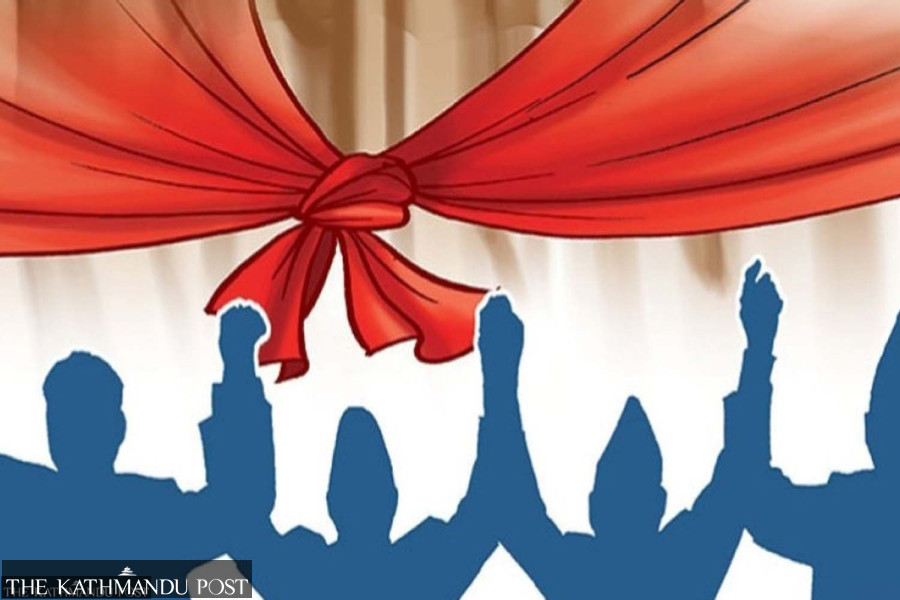Politics
Madhesh leaders meeting today to discuss forming a ‘loose alliance’
They oppose ruling parties’ attempt to hamper their electoral prospects.
Purushottam Poudel
Leaders from Madhesh-centric political parties are holding a meeting on Tuesday as they consider forming a ‘loose alliance’.
This comes at a time when the major ruling parties—the Nepali Congress and the CPN-UML—are mulling amending the law to increase the minimum vote percentage (threshold) required for parties to be eligible to secure seats under the proportional representation (PR) category.
Currently, the threshold provision stands at 3 percent in the House of Representatives and 1.5 percent in provincial assemblies. But leaders from the Congress and the UML have publicly advocated the need for raising the bar to 5 percent and 3 percent in House of Representatives and provincial assemblies, respectively, by amending the election law.
If endorsed by Parliament and enforced, the law could seriously hamper the future electoral prospects of the Madheshi parties.
The big parties blame the PR electoral category for the presence of a large number of political parties in the federal and provincial legislatures. They argue that the fringe parties get involved in political bargaining while forming governments at the centre and provinces, and are thus responsible for political instability in the country.
The Madhesh-centric parties that emerged from the first Madhesh movement of 2008 had fared well on the back of identity politics in the elections held immediately after the movement. But, over time, the parties’ numerical strength in the federal and provincial legislatures have waned.
While their bid for a ‘loose alliance’ might be aimed at regaining lost ground, political experts doubt such an alliance would function smoothly.
A major obstacle is that the Madheshi leaders from different parties “do not have harmonious relations with each other,” says Chandra Kishore, a Madhesh-based journalist and columnist. “Past incidents of acrimony between them make the effective functioning of such an alliance doubtful.”
The leaders, however, say they have learned from past mistakes.
Tuesday’s meeting, which will be the first among the leaders, will introduce the issue, says Hridayesh Tripathi, a veteran Madhesh-based politician who is currently the chairman of the Janata Pragatisheel Party.
Tripathi adds that the meeting would “formulate certain concepts on how we can forge ahead in the coming days.”
“The task force members of the Madhesh-based political parties, along with the representatives of other parties who have yet to form their task force, will take part in the meeting,” Tripathi says.
On Tuesday, Raj Kishor Yadav from the Janata Samajbadi Party-Nepal led by Upendra Yadav, and Renu Yadav and Ishtiyaq Rayi from the Jamata Samajbadi Party led by Ashok Rai will attend the meeting.
Similarly, Jitendra Sonal and Surendra Jha from Loktantrik Samajbadi Party led by Mahantha Thakur; Abdul Khan and Sharad Yadav from the Janamat Party; Shiva Jee Yadav from the Jana Pragatisheel Party; Keshav Jha from the Rastriya Mukti Party; and Brijesh Chandra Lal from the Terai-Madhesh Loktantrik Party will join the meeting.
Experts say that Madhesh-centric parties are springing into action as they expect to face an existential crisis in upcoming elections.
“People are not being lured by the political agenda of traditional political forces,” Chandra Kishore says.
He, however, adds that people in the Madhesh believe that the current central government is becoming revisionist, hence they want a strong Madhesh-centric party with the potential to carry forward their agenda.
Tula Narayan Shah, another expert on Madhesh politics, denies that the Madheshi parties are considering an alliance to improve their poll prospects. The alliance is being considered to oppose the major parties’ bid to amend the law on minimum threshold.
“Madheshi people see the seven-point agreement struck to form the current Congress-UML government, which in turn vows to amend the constitution, as a move against them,” Shah says. “Madheshi parties are mulling coming under a single umbrella to oppose that.”
Most Madhesh-based parties did not endorse the 2015 constitution, claiming their grievances were unaddressed. However, they later joined the government formed under the same constitution. Earlier, too, Madheshi parties had raised their voice over being ill-represented in mainstream politics. However, they repeatedly sidelined their political agenda for power.
“As the Madheshi leaders haven’t fulfilled their promises made to the Madheshi people, they might have a hard time regaining public trust,” Chandra Kishore says. “Moreover, how the loose network will work is still unclear.”
Keshav Jha, a representative from the Rastriya Mukti Party who is attending the meeting on Tuesday, claims that the introductory meeting will figure out a way ahead.
“Subsequent meetings will add to the clarity of our agenda,” Jha says.




 20.12°C Kathmandu
20.12°C Kathmandu















